Our Easter Egger, Gisele, has only given us one egg this past week. She usually gives us six beautiful blue eggs.
At first we thought she was hiding them, hunkering down on a new nest outside of the coop (which Kimora and Iman have been known to do). But after a few days of searching their favorite nesting and bathing spots, and even a few new ones under the oleanders, we realized there was no secret stash of eggs.
When we opened the coop, it looked like Gisele had broken out in a pillow fight overnight.
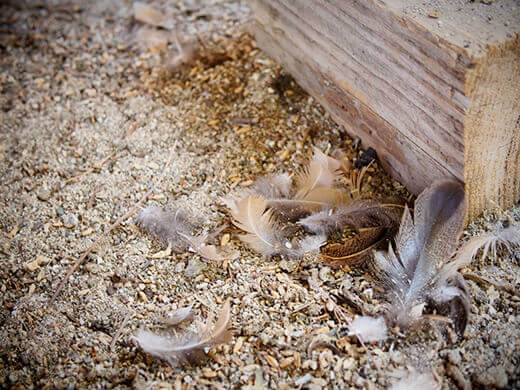
And that means molting season is upon us.
Last year, Gisele was the first in the flock to start molting as well. But she went through her molt quickly and by the time she grew back all her feathers, she was laying an egg a week all winter.
The other two haven’t started yet and are laying normally, but we expect them to start shedding their feathers by October.
It might seem strange for a chicken to lose her feathers just as the season’s cooling down, but molting is a yearly process of replacing her features for better insulation and weatherproofing in winter.
A chicken starts dropping feathers in late summer to early fall, but some won’t even start molting until early winter.
Various factors trigger the start of a molt, such as the breed and health, when the chicken started laying, how she is fed, and how much daylight there is. In general, all birds over a year old will go through a complete molt once a year
During a molt, a chicken begins to shed feathers from the head and neck, and then works her way down the body across the breast, back, wings and tail. Some ladies lose only a few feathers at a time while others look like they suddenly dropped their coats overnight.
You’ll start to find feathers everywhere and it’s a rather messy time in the coop and the garden!
“Soft molts” happen when a new feather replaces the old feather right away, so you might not notice the sequence of molting at all. My chickens usually go through soft molts, with random rough patches on their bodies while the new feathers are growing in.
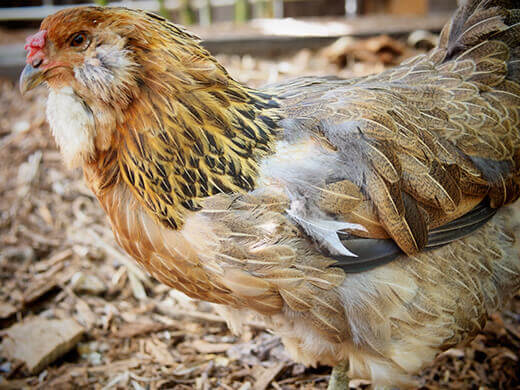
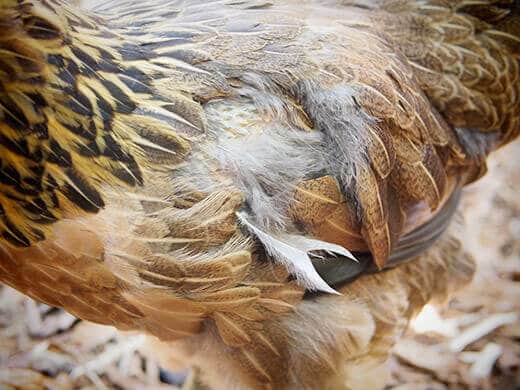
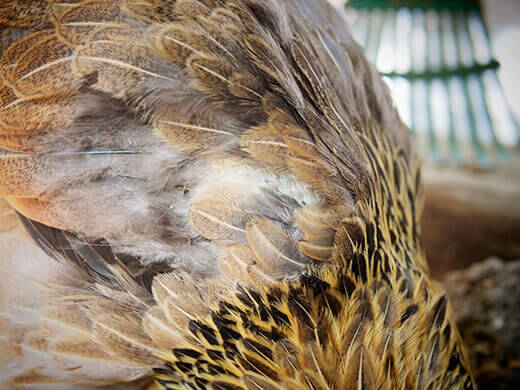
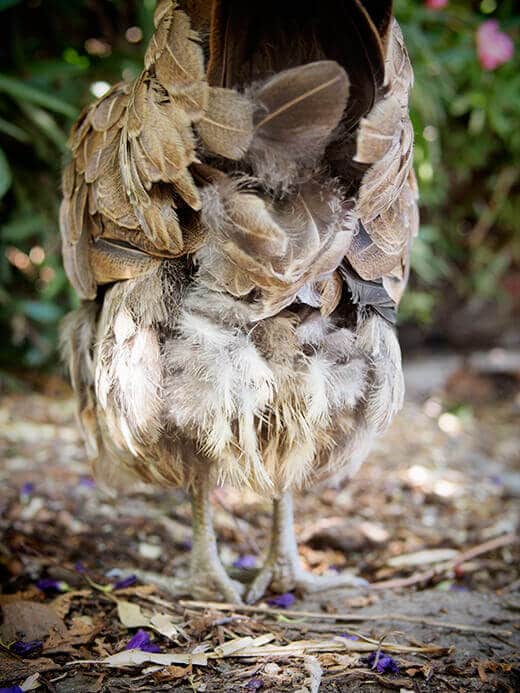
“Hard molts” happen when a chicken loses a lot of feathers at once but new ones take a long time to grow back, resulting in the poor thing being bald for the time being.
Some chickens going through hard molts may look like they’re ready for the oven (and it’s kind of alarming if you’re experiencing your first molt as a chicken-keeper), but within a couple months, those bare patches of skin and spiky-looking pin feathers will give way to soft, full, beautiful plumage.
Feathers are almost purely protein. They contain about 85 percent beta-keratin, the same protein in bird beaks and claws.
Since a chicken puts so much of her protein reserves toward replacing her feathers, egg production (another process that demands a lot of protein) drops temporarily or even stops completely during a molt.
Molts usually last around two or three months, but some chickens may take as long as four or five. By the time they’ve finished molting and are perfectly fluffed up for winter, the shorter days (and reduced light) signal them to rest their reproductive cycles.
Which means that in the world of chicken-rearing, when I go from 12 eggs a week to 2, winter is most definitely my least favorite time of year… sigh.
Even though your chickens may not be laying as much, it’s more important than ever to make sure they’re properly fed and have enough protein to get them through their molts.
When they lack sufficient protein, they may seek their own sources elsewhere… even if they have to peck and eat the other chickens’ feathers!
For hens going through hard molts, it might be helpful to amp up the protein in their feed to 20 or 22 percent.
If you’re mixing your own chicken feed, you can do this by adding more servings of high-protein grains and seeds, like triticale and sesame. Legumes like split peas and lentils are also excellent sources of protein, and can be served cooked for a hot treat on a cold day.
For hard or soft molts, it’s also a good idea to supplement your flock’s daily feed with high-protein treats in the form of black oil sunflower seeds or dried mealworms.
Use common sense when spoiling your girls with dried mealworms; the ultra-high protein content (around 50 percent) means it’s easy to overfeed when you see them all excited and eager. A small spoonful per chicken per day is plenty.
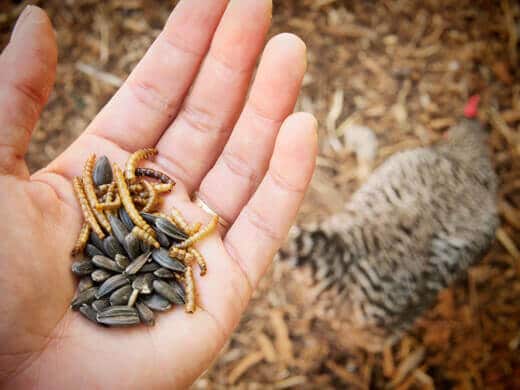
Ease up on the extra protein as your chickens finish their molts. When they resume their energy over winter, try a few of these tips to keep them healthy and happy while we all wait for the arrival of spring!
View the Web Story on how to help chickens grow back their feathers.


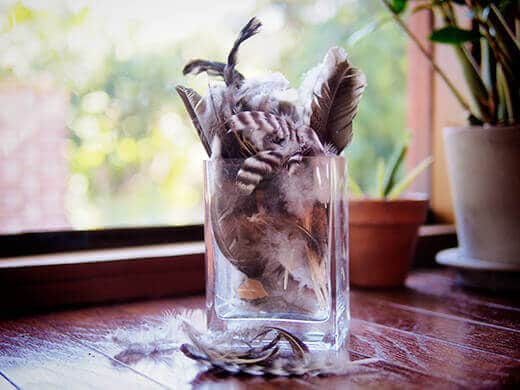
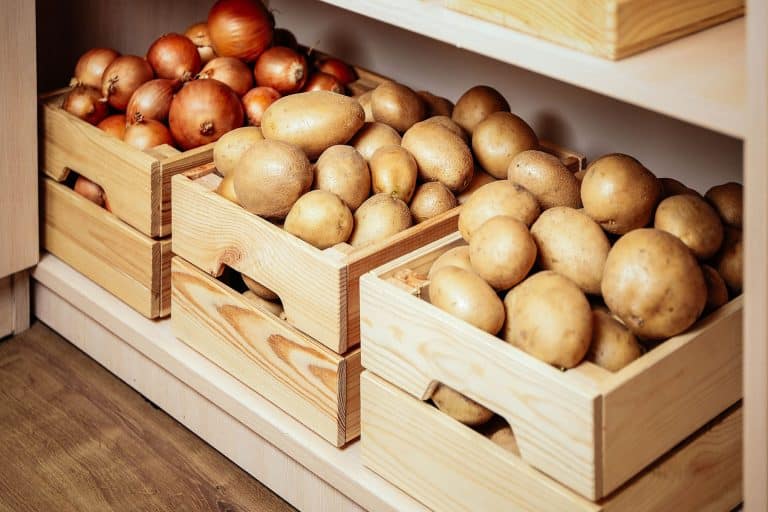


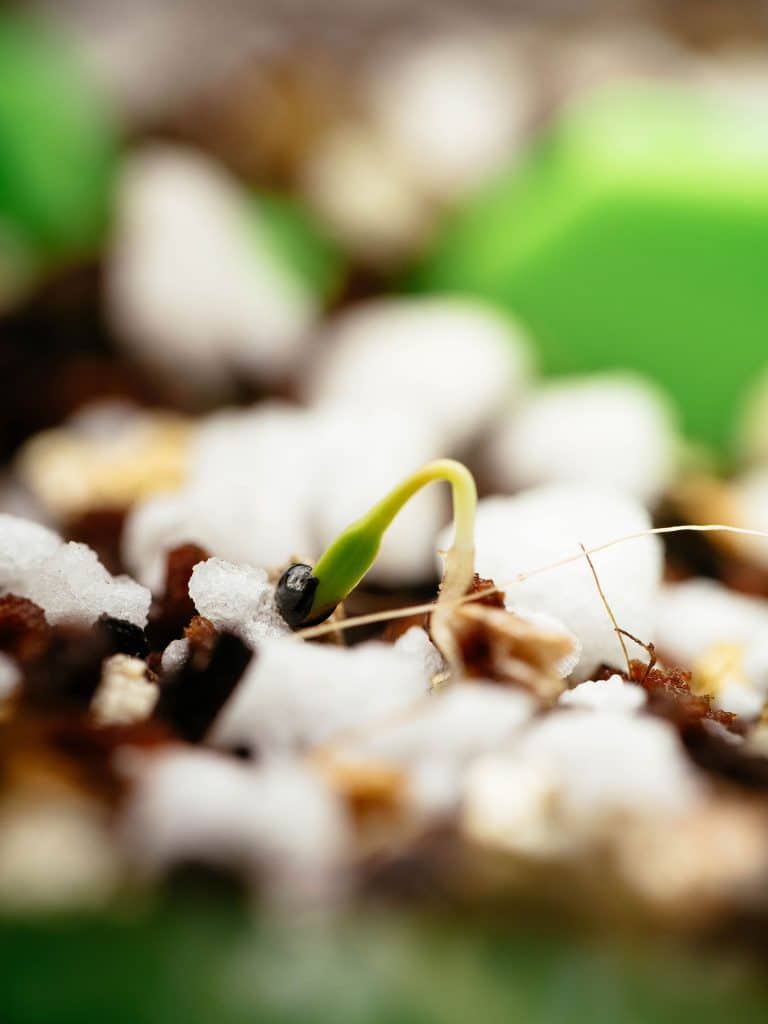
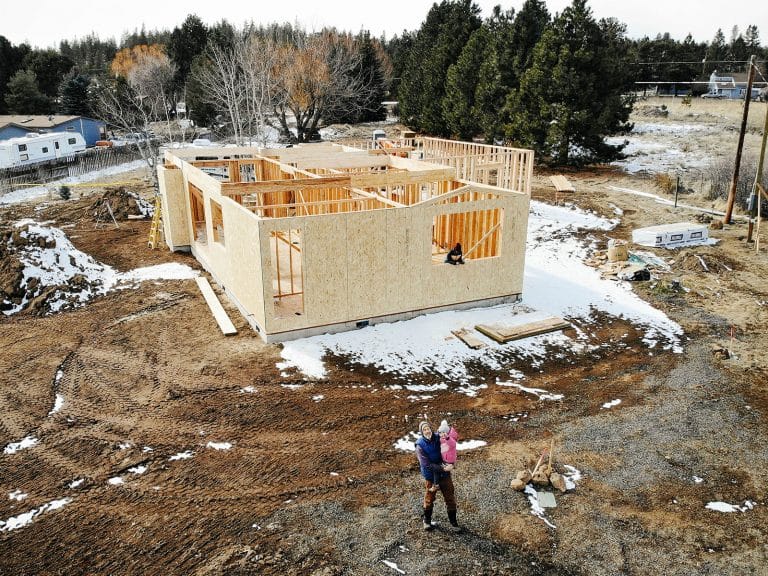

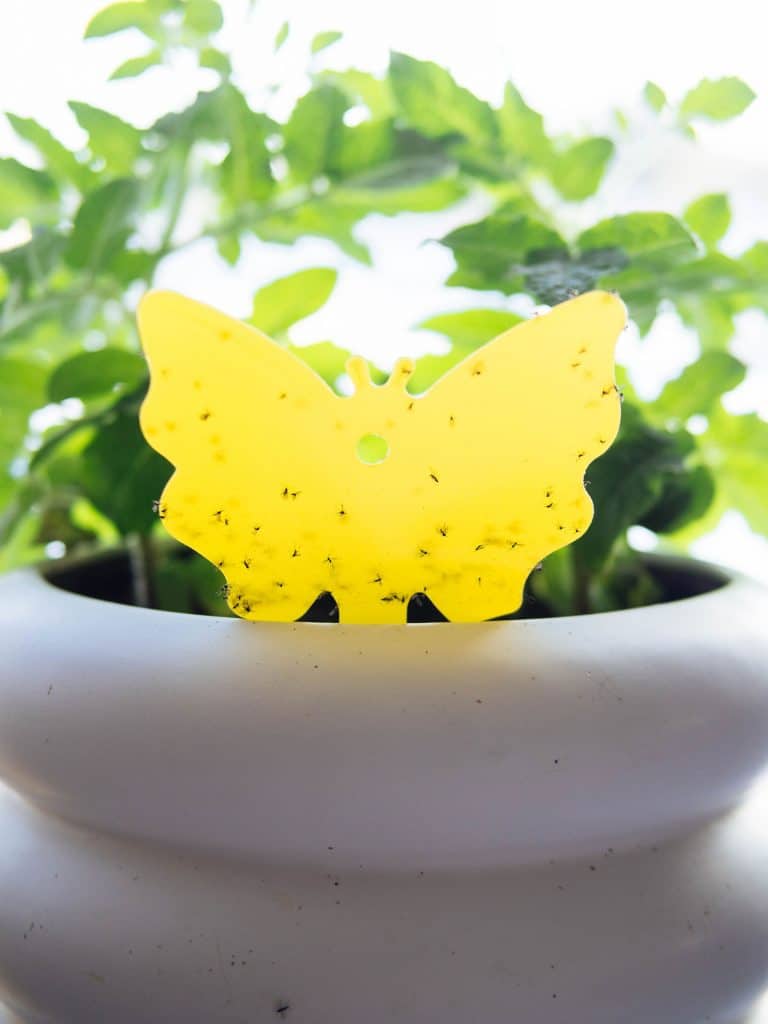
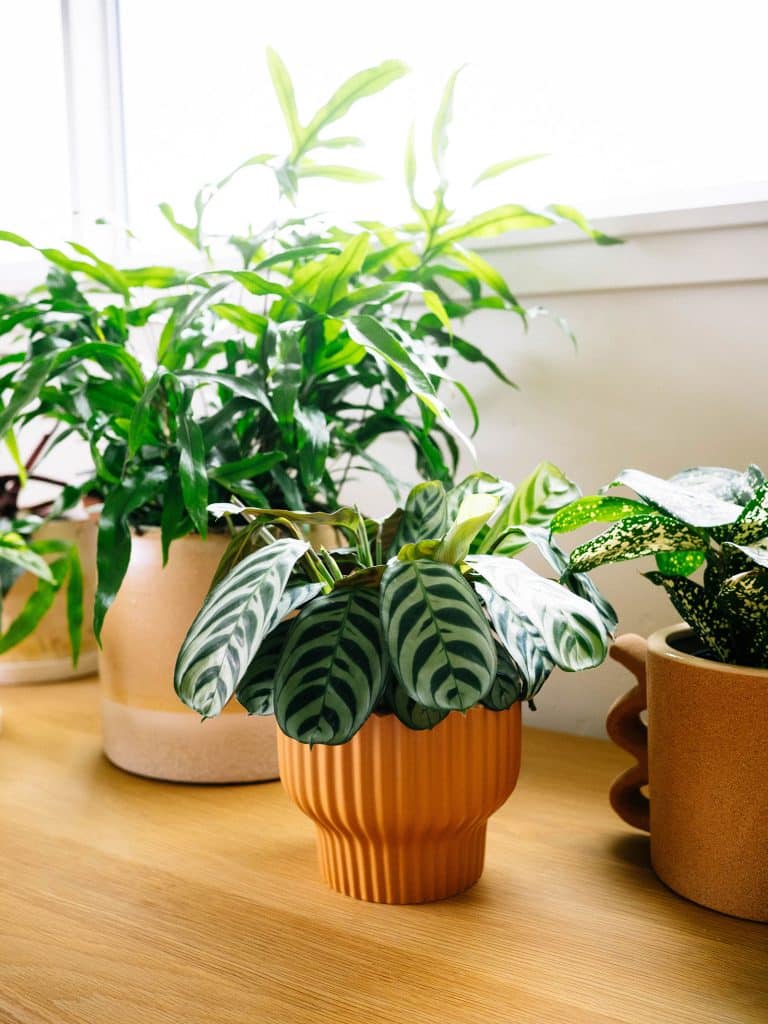
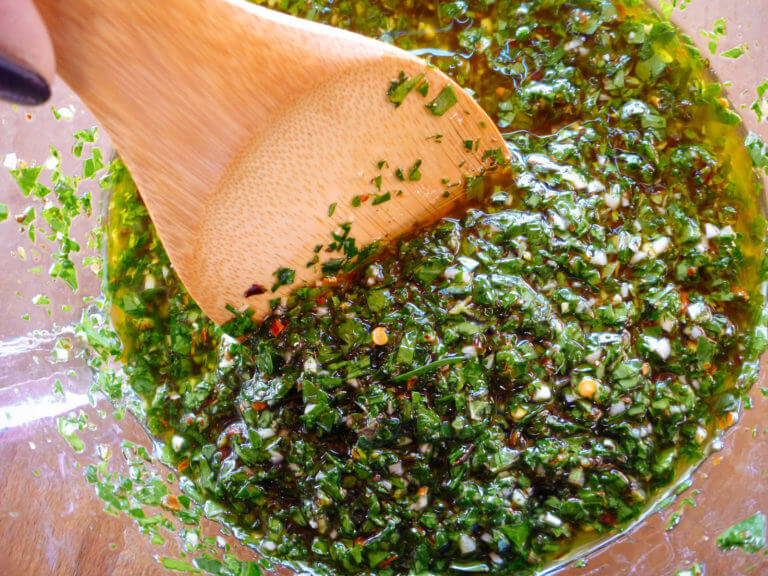
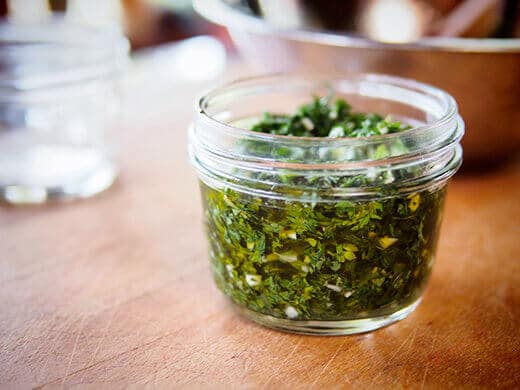
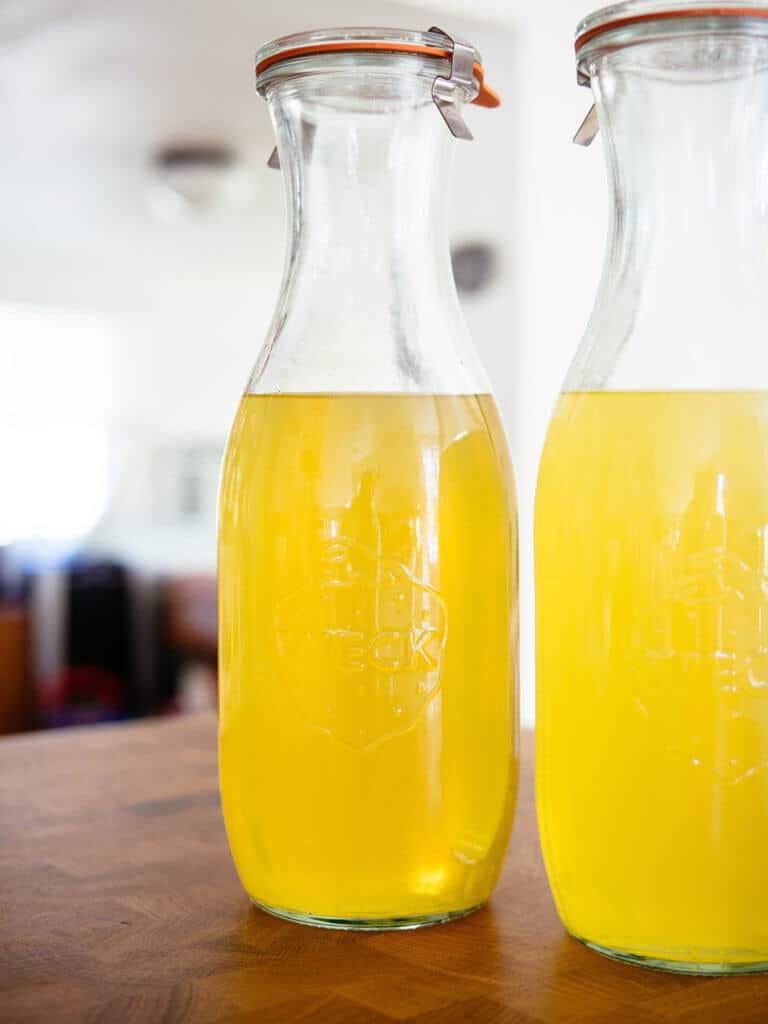
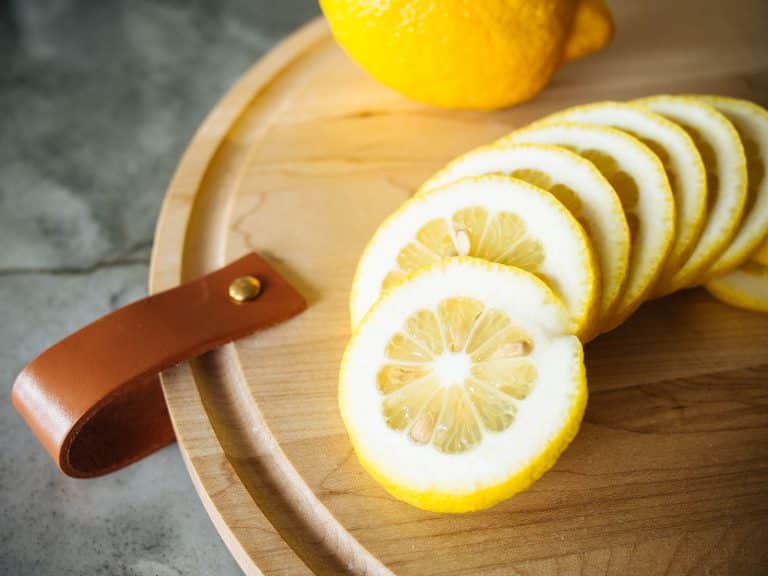

My chickens have bald spots on backs due to rooster being too rough. Bare skin showing. What do I give them to regrow feathers??
Extra protein will help them grow out feathers. Here’s a post that may help you: https://gardenbetty.com/helping-your-chickens-grow-back-beautiful-feathers/
Dear Linda
your website and blogs has helped me tremendously!THANK YOU THANK YOU! I had 32 chickens but down to 25 now because of the mites! My chickens have lost their feathers and egg production down, but i feel so sorry for my girls and 2 boys. Raven and Beau Brummel Even the chics lost feathers. Nobody could help me not even the vet! I did not know what to do to help my chickens but you are a STAR! From a dessert town in North West in South Africa (near Namibia border) we live on a farm! Maria
Hi Maria, I’m so glad this was helpful and that your flock is recovering!
I have lost my first pullet to a hawk, right in front of me. Me being there didn’t even deter the hawk in the least bit. Surprisingly, it broke my heart more that I thought it would. Is there anything I can do? I heard that hanging CD’s and getting a fake Owl could help. What about a scarecrow? I made my coop tough, buried the thick chicken wire 18 inches, steel mesh in the walls, I thought of every contigency on the coop, but missed aerial predators, I allow my entire flock and the rooster to free range. The rooster could not help in this situation because the pullet is part of a new batch, that is quarantined to ensure not sick. Any advice? Thank you
So sorry to hear about your pullet, I know the heartbreak all too well. Unfortunately, the only real safeguard against aerial predators is an enclosed run. You can try those other deterrents, but I wouldn’t rely on them to actually scare off a hawk. If your flock is used to free-ranging, I would lean toward building an extra large run with netting overhead, or at the very least, fencing them off in an area with lots of trees, logs, and other features they can hide under.
My Jack Russel has tormented a 3.5 month old hen and she has had all of the feathers on one side of her back plucked. Thankfully she seems to have most of the feathers on her wings so she has some protection from the sun. She seems quite unfazed by the whole thing and surprisingly the other chickens are not bothering her yet. There are 3 young roosters in the flock. Will her feathers grow back as she is so young….she is quite sweet and was the only hen that came to greet us if we went out. Bad dog! I wish she would stick to pack rats and pocket gophers!
Yes, her feathers will eventually grow back! Just make sure she gets enough protein in her feed to help with feather production.
Thanks so much Linda, nice to know she will be a pretty little thing again.:)
I have a little bantam hen that has lost feathers just on her wings. I bought “Lady Bird” from a woman that had the poor girl in a small cage with about 4 or 5 roosters. She had feathers missing from her head as well as her back end. I feel like I had rescued her from a bad environment. I feed her a high protein feed. she is in a large pen and yard and gets along with the other hens. Right now I have her in a cage by herself because she was going broody on me. What can I do to get her feathers to grow back or have they been permantely damaged. Also all my chickens are fed high protein feed, fresh greens and fruit plus meal worms for treats. Your help will be greatly apppreciated
“
Keep taking care of her the way you have, and her feathers should grow back over time. I also recommend adding electrolytes or apple cider vinegar to her water for a week to help reduce her stress.
She is an easter egger but the specific breed is Americana! They are so beautiful. Also one of my bantam bird has her primary feathers loss and fair is soon! How long would it take to regrow feathers? I am also contemplating if I should pull the feathers that are broken or torn to help out. What do you suggest?
Hi, I have to clarify that Easter Eggers and Ameraucanas are actually two separate breeds. EEs are not officially recognized as a breed since they’re sort of a hybrid, but they (and their eggs) are distinctly different from Ameraucanas. Also note that the name “Americana” (assuming you didn’t misspell it) is just a marketing term for an EE, meant to cause confusion with a true-bred Ameraucana.
But to answer your questions, please DO NOT pull your chickens’ feathers out! They will shed the feathers naturally. The rate at which they regrow feathers is variable with every chicken, sometimes it’s as soon as 2 months but can take up to 5 months. You can read more on this page that discusses the process of molting: http://gardenbetty.com/2015/12/why-some-chickens-molt-faster-than-others/
this pic looks almost like my girl..and I haven’t been able to figure out what kind she is..would you know what breed this pic is?
She’s an Easter Egger. You can always tell an Easter Egger because the hen lays blue or green eggs (hence the name).
Hi Linda. Thank you for all of your helpful information. At the beginning of winter we had a mite infestation which I took care of quickly but it seems to have sent one of my Rhode Island Reds into a second and very drastic molt. Now that her feathers have grown back, they are not the healthy, vibrant red she originally had. Standing next to her Rhode Island sisters, makes it even more noticeable. They were not so drastically affected by the mites as she was and did not go through anything like she did. I also notice that under their roost at night I find a lot of white shell like bits from her feathers. A lot! I feed them dried meal worms and a special feed for growing feathers plus a multitude of greens and fruits and other assorted goodies. I also put apple cider vinegar in their water. Any help would be most appreciated. Thank you
Those white shell-like bits are just the casings from new feathers, nothing to worry about! As for aiding her feather growth, I’ve found that oil-rich, high-protein foods help put the sheen back in feathers: sunflower seeds (especially BOSS), sesame seeds, flax seeds (though not too much), hemp seeds, peanuts. Balance these out with plenty of dark leafy greens, and you should start to see some improvement (especially after winter). It can take some time for a hen to recover from a molt; mine still have pale pink combs (versus their usual deep red), despite finishing their molts a couple weeks ago.
thank you so very much! Happy Holidays to you and yours.
Happy holidays! Thank you for reading!
Hi Linda! I am a new owner to some bantams and one always goes broody, and the other not so much. But now they both are! They’re also losing their feathers on their chest and today I caught them ducking their head under each others chest. Could that be why? I am going o give them some mealworms but wondering if there is anything else I can give them to make them happy! All the way from Australia here! x Amy
Hi Amy,
I’ve written about broodiness here and how you can snap your hens out of it: http://gardenbetty.com/2014/06/how-to-break-a-broody-hen/
The feather loss is likely from your bantams pulling out their own feathers. This is a natural instinct because when they’re broody, they want to sit on a clutch of eggs and keep them warm with a bare chest. The post linked above will tell you more!
Thank you kindly! Im about to put one of my girls into a box/cage to “unbroody” her. I’ve also locked one out of her coop as she is turning broody too, do then NEED to lay in the hay, or are they happy to lay in their run if I keep to coop closed to stop them nesting and becoming broody. Is this ok?
Your hens may simply lay eggs on the ground (in their run) if they don’t have access to their nest. Mine will sometimes make their own “nest” in mulch, compost, etc. if they find a cozy enough spot. (They’ve hidden eggs from me this way.) If you don’t have bedding in the run, hopefully the surface (be it dirt or grass) is soft enough.
Help me
Thanks for your blog – I have just noticed that my chickens are nearly raw and yes, egg supply is dwindling!!! Was worried but now put at ease…
I have another post that explains the molting process in more detail: http://gardenbetty.com/2014/02/stages-of-seasonal-feather-loss-and-feather-growth/
Cool
I have a chicken who lost her feathers around her bum and sides about six month ago, and the feathers haven’t grown back. the skin where she lost the feathers is really red. also the last four weeks she has got a really poopy bum, is there anyhting you can suggest that would help her grow back the feathers
Regards
I would watch the flock and see if the other chickens (or rooster) is pecking her and pulling out her feathers. If so, it’s best to keep her isolated from the flock until she recovers. Check her for mites or lice, and treat accordingly. To soothe her skin, give her an Epsom salt bath: http://gardenbetty.com/2013/10/the-spa-treatment-for-sick-chickens/
I am concerned about one of my easter eggers. She is about 8 weeks old, and some of her baby feathers on her back have not come out, like the other easter egger’s. One has, looks like adult feathers, nice and full; her name is Esther, The other, Ms Falcon, well, I don’t think it looks right on her back. Should I put some coconut oil or vetericyn or critter oil or tea tree oil on her?
Thanks for any encouragement as to what to do..nothing, maybe??
It sounds like she’s still going through her juvenile molt, so I personally wouldn’t worry about it. Some hens molt faster/slower than others.
Kris Snider liked this on Facebook.
I have Dark Brahmas…2 roosters and 7 hens…2 of the hens are showing signs of reduced feathers at the end of their backs…before the tail…its mid winter here in WV so I thought molting might not be the cause…could it be rooster activity?
Hard to tell without much information, but it does seem odd that your hens would only start to molt now (when most should be finished). Roosters do tend to get aggressive during mating. If you’re concerned, you can make or buy a chicken saddle to protect your hens from being completely rooster-pecked.
They r only about 10 months old and have a very good well balanced diet..
Its been very cold here and I’ve had heat lamps in their coop for warmth…they have been on pretty much constantly due to the extreme weather…their my buddies and I was just worried about them…lol…thanks for the advice!!!
Where do you buy your mealworms? I think you mentioned an economical way to buy them in another post, but I can’t find it!
I usually wait for a sale on Amazon and buy the bulk bags marketed toward wild birds.
Amazon is a great place to get them. I also buy them at Lowe’s for a decent price.
Blogged on Garden Betty: Helping Your Chickens Grow Back Beautiful Feathers http://t.co/ooFhYdfb87 < TY for RT! @Angry_Saguaro
Stock up on sunflower seeds and dried mealworms! Helping Your Chickens Grow Back Beautiful Feathers http://t.co/dh7nqLypX0 #homesteading
Molting is a tiring process for your flock. What to do: Helping Your Chickens Grow Back Beautiful Feathers http://t.co/ZkPgGiGFrE
Amy Watkins Pellicer liked this on Facebook.
Angie Smith liked this on Facebook.
Jennie Lai liked this on Facebook.
Molting season is upon us! Helping Your Chickens Grow Back Beautiful Feathers http://t.co/S9vdm0Wsug #homesteading #backyardchickens
Thanks for this post! I have a wonderful leghorn who laid 6 eggs a week all last winter while the other 7 girls took a break. She has probably laid 4 eggs in the last 3 months, so I was starting to wonder if she was done (she’s only about 2). Hopefully she’ll be back to it soon!
It does seem a bit odd to drop so much during the summer, as 2 years is still a fairly productive age. I’d check to see if there’s something stressing her out, such as hen-pecking, diet changes, or environmental changes. Or, maybe she has a secret nest – all of my hens have been known to lay in random places!
Ali Nazario liked this on Facebook.
Lyndia Root liked this on Facebook.
Autumn Sij liked this on Facebook.
RT @theGardenBetty: Blogged on Garden Betty: Helping Your Chickens Grow Back Beautiful Feathers http://t.co/ooFhYdfb87
Helping Your Chickens Grow Back Beautiful Feathers:
Our Easter Egger, Gisele, has only given us one egg this … http://t.co/U9QsFHYV2F